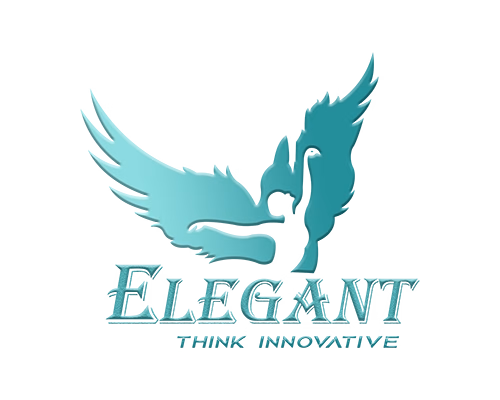The importance of website security for protecting customer data
Introduction
Website security is an essential part of any online business. It is important to protect customer data from malicious attacks, data breaches, and other cyber threats. Website security helps to ensure that customer data is kept safe and secure, and that customers can trust the website they are using. It also helps to protect the website from malicious attacks, which can lead to financial losses and reputational damage. By implementing the right security measures, businesses can protect their customers and their data, and ensure that their website remains secure

How Website Security Can Help Protect Your Customers’ Data
Website security is an essential component of any online business. It is essential for protecting customers’ data and ensuring that their information is kept safe and secure.
Website security involves a variety of measures that can be taken to protect customer data. These measures include encryption, authentication, and access control. Encryption is the process of encoding data so that it can only be accessed by authorized users. Authentication is the process of verifying the identity of a user before allowing them access to the website. Access control is the process of restricting access to certain areas of the website based on user roles and permissions.
In addition to these measures, website security also involves the use of firewalls and antivirus software. Firewalls are used to block malicious traffic from entering the website, while antivirus software is used to detect and remove any malicious software that may have been installed on the website.
Website security also involves the use of secure sockets layer (SSL) technology. SSL is a protocol that encrypts data sent between the website and the user’s browser. This ensures that any data sent between the two is secure and cannot be intercepted by third parties.
Finally, website security also involves the use of secure passwords. Passwords should be complex and unique, and should not be shared with anyone else. It is also important to regularly change passwords to ensure that they remain secure.
By implementing these measures, businesses can ensure that their customers’ data is kept safe and secure. This will help to protect customers’ privacy and ensure that their information is not compromised. It will also help to build trust between the business and its customers, as customers will know that their data is being kept safe.
The Benefits of Implementing Website Security Measures
The implementation of website security measures is essential for any business that operates online. Website security measures help protect businesses from malicious attacks, data breaches, and other cyber threats. By taking the necessary steps to secure their websites, businesses can protect their customers’ data, their own data, and their reputation. Here are some of the benefits of implementing website security measures.
1. Increased Customer Confidence: Customers are more likely to trust a website that is secure. When customers know that their data is safe, they are more likely to make purchases and provide personal information. This can lead to increased sales and customer loyalty.
2. Improved Brand Reputation: A secure website can help protect a business’s reputation. If a website is vulnerable to cyber attacks, customers may be less likely to trust the business. By implementing website security measures, businesses can protect their reputation and ensure that customers have a positive experience.
3. Reduced Risk of Data Breaches: Data breaches can be costly for businesses. By implementing website security measures, businesses can reduce the risk of a data breach and protect their customers’ data.
4. Reduced Risk of Malware Attacks: Malware attacks can cause significant damage to a website. By implementing website security measures, businesses can reduce the risk of a malware attack and protect their website from malicious actors.
5. Improved Compliance: Many businesses are required to comply with certain regulations and standards. By implementing website security measures, businesses can ensure that they are compliant with these regulations and standards.
By implementing website security measures, businesses can protect their customers’ data, their own data, and their reputation. These measures can also help businesses increase customer confidence, improve their brand reputation, reduce the risk of data breaches and malware attacks, and improve compliance. Taking the necessary steps to secure a website is essential for any business that operates online.
The Risks of Not Having Adequate Website Security
The internet has become an integral part of our lives, and websites are the primary way we interact with the digital world. As such, website security is of paramount importance. Unfortunately, many website owners fail to take the necessary steps to ensure their sites are adequately protected. This can lead to a variety of risks, including data breaches, malicious attacks, and financial losses.
Data Breaches
Data breaches occur when unauthorized individuals gain access to sensitive information stored on a website. This can include customer data, financial information, and other confidential information. If a website is not properly secured, it can be vulnerable to data breaches, which can have serious consequences. Not only can it lead to financial losses, but it can also damage a company’s reputation and lead to legal action.
Malicious Attacks
Malicious attacks are a common form of cybercrime. These attacks can range from simple defacement of a website to more sophisticated attacks that can cause serious damage. If a website is not properly secured, it can be vulnerable to malicious attacks, which can lead to data loss, financial losses, and reputational damage.
Financial Losses
Financial losses can occur if a website is not properly secured. Hackers can gain access to financial information stored on a website and use it to make unauthorized purchases or transfer funds. Additionally, if a website is not properly secured, it can be vulnerable to Distributed Denial of Service (DDoS) attacks, which can cause significant financial losses.
In conclusion, it is essential for website owners to ensure their sites are adequately secured. Failing to do so can lead to data breaches, malicious attacks, and financial losses. By taking the necessary steps to secure their websites, website owners can protect their customers, their businesses, and their reputation
Understanding the Different Types of Website Security Solutions
Website security is an important consideration for any business or organization that has an online presence. With the increasing prevalence of cybercrime, it is essential to ensure that your website is secure and protected from malicious attacks. There are a variety of website security solutions available, each with its own advantages and disadvantages. In this article, we will discuss the different types of website security solutions and how they can help protect your website.
The first type of website security solution is a web application firewall (WAF). A WAF is a software program that monitors and filters incoming traffic to your website. It can detect and block malicious requests, such as those from hackers attempting to gain access to your website. WAFs are typically deployed as part of a larger security system, such as a content delivery network (CDN).
The second type of website security solution is a content delivery network (CDN). A CDN is a network of servers that are distributed across the internet. These servers are used to store and deliver content to users. CDNs can help protect your website from malicious attacks by providing an additional layer of security.
The third type of website security solution is a web application scanner (WAS). A WAS is a software program that scans your website for vulnerabilities and potential security threats. It can detect and block malicious requests, such as those from hackers attempting to gain access to your website. WASs are typically deployed as part of a larger security system, such as a content delivery network (CDN).
The fourth type of website security solution is a web application security platform (WASP). A WASP is a software platform that provides a comprehensive suite of security tools and services. It can detect and block malicious requests, such as those from hackers attempting to gain access to your website. WASPs are typically deployed as part of a larger security system, such as a content delivery network (CDN).
The fifth type of website security solution is a web application security testing (WAST) platform. A WAST platform is a software platform that provides a comprehensive suite of security testing tools and services. It can detect and block malicious requests, such as those from hackers attempting to gain access to your website. WASTs are typically deployed as part of a larger security system, such as a content delivery network (CDN).
By understanding the different types of website security solutions available, you can make an informed decision about which solution is best for your website. Each solution has its own advantages and disadvantages, so it is important to consider your specific needs before making a decision. With the right website security solution in place, you can ensure that your website is secure and protected from malicious attacks.
Best Practices for Keeping Your Customers’ Data Secure on Your Website
1. Use Secure Passwords: Make sure that all passwords used to access customer data are secure and complex. Avoid using common words or phrases, and use a combination of upper and lowercase letters, numbers, and symbols.
2. Encrypt Data: Encrypting customer data is a must for any website that stores sensitive information. This will ensure that even if the data is accessed, it will be unreadable.
3. Use Secure Connections: Make sure that all connections to and from your website are secure. This includes using secure protocols such as SSL/TLS and HTTPS.
4. Monitor Access: Monitor who has access to customer data and what they are doing with it. Make sure that only authorized personnel have access to sensitive information.
5. Regularly Update Software: Make sure that all software used to store and process customer data is regularly updated. This will ensure that any security vulnerabilities are patched quickly.
6. Use Firewalls: Firewalls are essential for keeping malicious actors out of your system. Make sure that all firewalls are properly configured and regularly updated.
7. Educate Employees: Make sure that all employees are aware of the importance of data security and are trained on best practices.
8. Use Multi-Factor Authentication: Multi-factor authentication adds an extra layer of security to customer accounts. This will ensure that only authorized users can access customer data.
9. Regularly Back Up Data: Regularly back up customer data to ensure that it is not lost in the event of a system failure or attack.
10. Monitor Activity: Monitor customer activity on your website to detect any suspicious behavior. This will help you identify any potential security threats quickly
Conclusion
In conclusion, website security is essential for protecting customer data. It is important to ensure that customer data is kept secure and confidential, and that any potential threats are identified and addressed quickly. Website security measures such as encryption, authentication, and access control can help protect customer data from unauthorized access and malicious attacks. By taking the necessary steps to secure customer data, businesses can ensure that their customers’ data is safe and secure.
Protect your customers’ data and keep your website secure! Take the necessary steps to ensure your website is secure and your customers’ data is safe. Click here to learn more about website security and how to protect your customers’ data.







